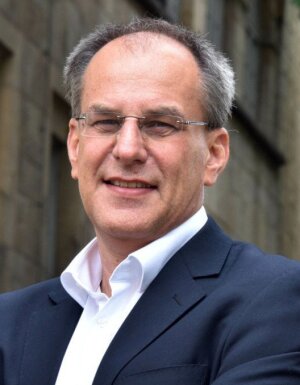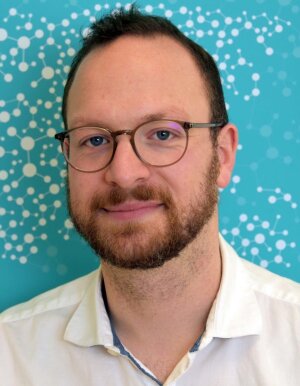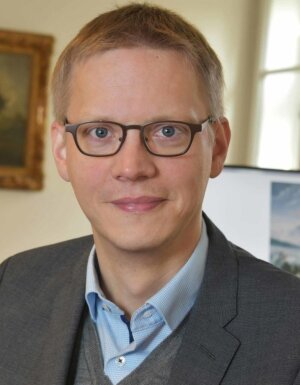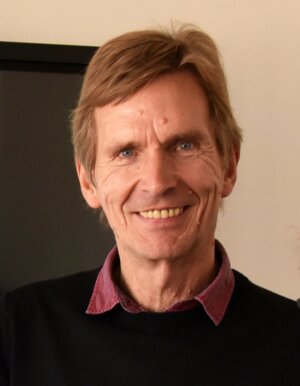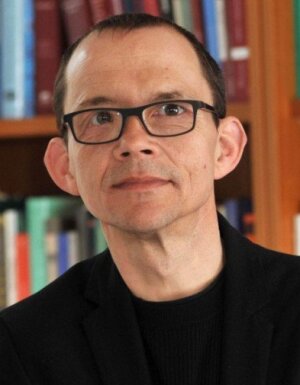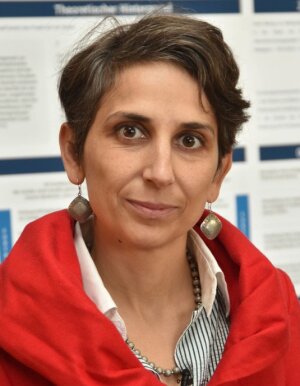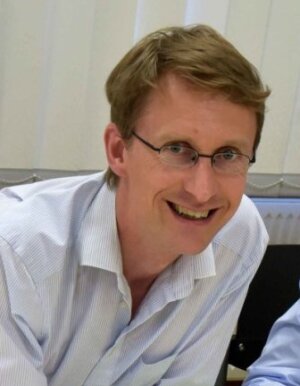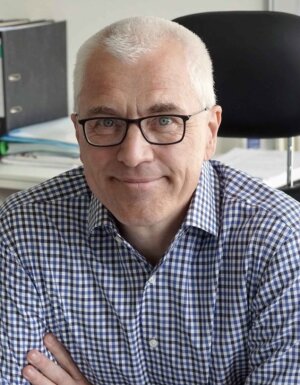New projects
Prof. Dr. Uwe Cantner
Image: Anne Günther (University of Jena)The winner takes it all?
Competition in higher education studied by new research group
There is increasing competition amongst institutions of higher education as they fight for students, staff and research grants. This competition amongst public institutions of higher education—and the role played by different actors—is being investigated by Prof. Dr Uwe Cantner (pictured), an innovation researcher who is a member of a new research group called ›Multiple Competitions in Higher Education: Stakeholders, Coordination and Consequences‹, which is based at the International Centre for Higher Education Research in Kassel. Canter is working with Prof. Dr Thomas Grebel from Ilmenau University of Technology to study the ›dynamic competition amongst (autonomous) institutions of higher education‹. The project will receive 520,000 euros in funding from the German Research Foundation over the next three years. [viv/AB]
Dr. Simon Runkel
Image: Anne Günther (University of Jena)Between liberty and security
A European research group is studying how the urban atmosphere is shaped by the threat of terrorism
How do people in Europe see the threat of terrorism? How do counter-terrorism measures change their attitudes and how does this affect their social coexistence? These are the questions asked by researchers as part of the project ›Atmospheres of (Counter)Terror in European Cities‹. In addition to the team of researchers led by social geographer Prof. Dr Simon Runkel from the University of Jena, the project will also involve the Universities of Birmingham, Plymouth and Cergy-Pontoise and L’Institut Paris Region. Over the next three years, the project will receive around 1.2 million euros in funding from the German Research Foundation and similar organizations in Great Britain and France—and 290,000 euros will go to Jena. Runkel (pictured) will be investigating how policymakers and urban planners are dealing with crowds. [ch]
Prof. Dr. Johannes Grave
Image: Anne Günther (University of Jena)Art circa 1800
An art historian is examining depictions of the sublime
Comparisons are part of our everyday tools to orientate ourselves in the world. However, we sometimes reach the limits of what is comparable. Prof. Dr Johannes Grave (pictured) wants to explore one of these limits. As part of his research project entitled ›Picture Comparisons. Practices of Incomparability and the Theory of the Sublime‹, the art historian from the University of Jena wants to analyse images to discover how the sublime was depicted in art circa 1800. His starting point is Kant’s understanding of the sublime as something that evades comparison due to its immeasurable size. The project forms part of the collaborative research project 1288 at the University of Bielefeld: ›Practices of Comparing. Ordering and Changing the World‹. The four-year project will receive a total of around 300,000 euros in funding from the German Research Foundation. [sl]
Prof. Dr. Jürgen Bolten
Image: Anne Günther (University of Jena)Virtual games
A project to promote intercultural communication
Prof. Dr Jürgen Bolten (pictured), a communication expert at the University of Jena, regularly gets students and teachers from around the world to conduct simulated negotiations in virtual classrooms to enhance their experience and awareness of digital and intercultural settings. Bolten and his team are working on a new project to develop the concept of digital collaboration. The project is part of the ›International Virtual Academic Collaboration‹ funding programme of the German Academic Exchange Service and will receive around 130,000 euros in funding from the Federal Ministry of Education and Research. The aim is to anchor the digitalization initiatives introduced at institutions of higher education during the coronavirus pandemic. The team from the University of Jena is collaborating with institutions of higher education in Poland, China, Finland, Romania, France and Canada. [US]
Prof. Dr. Christoph Demmerling
Image: Anne Günther (University of Jena)20th-century philosophy
DFG-funded project examines overlaps between philosophical movements
What is the relationship between critical theory, philosophical anthropology and logical empiricism? These three key philosophical movements of the 20th century will be studied over the next three years by a team of philosophers at the University of Jena: Prof. Dr Christoph Demmerling (pictured), Max Beck and Nicholas Coomann. Their collaborative project entitled ›Post-Metaphysical Philosophizing‹ will receive around 350,000 euros in funding from the German Research Foundation. Their focus is on the main exponents of each school of thought: Max Horkheimer and Theodor W. Adorno for critical theory; Max Scheler, Arnold Gehlen and Helmuth Plessner as the voices of philosophical anthropology; and Rudolf Carnap and Hans Reichenbach as the protagonists of logical empiricism. [sl]
Dr. Luisa Conti
Image: Anne Günther (University of Jena)Interculturality on Twitter
New project launched by Intercultural Business Communication
Can virtual reality still be separated from the real world? And, if not, how can this complexity be explored? This question is being investigated by a network known as ›Researching Digital Interculturality Co-operatively‹, which is being coordinated by the University of Jena. Dr Luisa Conti (pictured) and PD Dr Fergal Lenehan are working on part of the project in Jena. Their focus, ›Cosmopolitanism, Nationalism and Intercultural Competence in Online Contexts‹, has been granted 1.1 million euros in funding from the Federal Ministry of Education and Research. They are studying intercultural communication on Twitter around Europe. Some of their partners investigating the issue of interculturality in a digitalized society are based at institutions of higher education in Mainz, Potsdam, Ireland, Brazil and Israel. [viv/AB]
Dr. Kamil Ustaszewski
Image: Jan-Peter Kasper (University of Jena)Paleoseismology
A project on tectonic activities in the history of the earth
The border region between South Tyrol, East Tyrol, Carinthia and Slovenia is particularly exciting for geologists. It is home to the eastern Periadriatic Fault System, which is a region with some of the most important tectonic structures in the Alps. The historic earthquakes in this area are being investigated by a team of scientists from the Leibniz Institute for Applied Geophysics in Hanover and the Institute of Geosciences at the University of Jena. Prof. Dr Kamil Ustaszewski (pictured), a geoscientist from the University of Jena, is involved in the project which will receive a total of 187,000 euros in funding from the German Research Foundation. The team is using new dating methods that allow earthquakes to be detected from the Quaternary Period, the most recent geological period in the earth’s history from 2.4 million years ago to the present day. [LIAG/GC/AB]
Prof. Dr. Axel Brakhage
Image: Jan-Peter Kasper (University of Jena)COVID-19 therapy
InfectControl research network brings together experts to fight coronavirus
A team of researchers from the Leibniz Institute for Natural Product Research and Infection Biology—Hans Knöll Institute—(Leibniz-HKI), the University of Jena, the University of Würzburg and the Leibniz Institute for Experimental Virology in Hamburg are combining their expertise to combat the coronavirus pandemic. The project will receive around 2.3 million euros in funding from the Federal Ministry of Education and Research as part of the InfectControl consortium directed by Prof. Dr Axel Brakhage (pictured). The researchers want to develop a novel therapeutic approach where the SARS-CoV-2 virus is eliminated from a person’s immune system in a targeted manner. The findings made in the project could also help to accelerate the development of treatments for other pathogenic outbreaks in the future. [InfectControl/MK]
